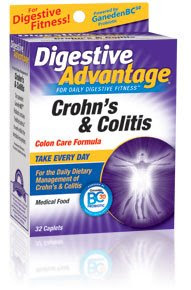 A woman form from Pontypool in Wales with Chrons Disease (Crohn's Disease), the debilitating and incurable inflammatory bowel condition lost a quarter of her body weight and took nine months to get properly diagnosed has decided to help spread the word about it and the other related condition of colitis.
A woman form from Pontypool in Wales with Chrons Disease (Crohn's Disease), the debilitating and incurable inflammatory bowel condition lost a quarter of her body weight and took nine months to get properly diagnosed has decided to help spread the word about it and the other related condition of colitis.
It is said that there are 80,000 people in the UK who have the disease and yet so few people are even ware of the conditions' existence, there is much general ignorance to overcome.
Samara Kemp (24) who now has her Chrons symptoms mostly under control said that before she was diagnosed "Doctors put it down to other things, problems with food, food poisoning. I'd been eight-and-a-half stone and went down to six-and-a-half stone." Along with the weight loss she had symptoms of extreme tiredness.
Eventually the correct diagnosis and similar to what happened to me, came from a private doctor. Chrons Disease often affects the small intestine, causing inflammation, deep ulcers and scarring and typical symptoms include pain, urgent diarrhoea, severe tiredness and loss of weight.
After the diagnosis, she again like I was put on a 6 month course of steroids, daily medication, supplements such as iron and calcium, and a low fibre diet.
"I was close to nine months without a diagnosis and it was a relief at last to know what was wrong," she said.
The severity of symptoms mean Chrons and colitis patients can take over your life with the lack of awareness among most people makes it even more difficult. "There needs to be quicker diagnosis and more awareness. I have trouble getting keys for disabled toilets because people don't believe I am ill," said Ms Kemp, because of this and many other day to day situations that arise because of the disease, it has taken Samara time for her to rebuild her confidence before venturing out regularly.
Samara is now working as a substance misuse and mental health officer, she added: "South Wales Police have been great too, but it's not like that everywhere, and many people suffer in silence."
Currently there is no surgical or medical treatment that can guarantee a complete cure from the condition, however there are treatments available that can effectively treat the symptoms and bring prolonged of relief from a Chrons inflammation.


 It has been found that Children with inflammatory bowel disease (IBD), that includes children with chrons and ulcerative colitis have low levels of Folic Acid in their blood, this ads to the theory that people with chrons and ulcerative colitis are lacking in Folate (Folic Acid)
It has been found that Children with inflammatory bowel disease (IBD), that includes children with chrons and ulcerative colitis have low levels of Folic Acid in their blood, this ads to the theory that people with chrons and ulcerative colitis are lacking in Folate (Folic Acid) Today I read about an over the counter drug that has been approved by the Food and Drug Administration (FDA), that is supposed to help people with conditions including Irritable Bowel Syndrome, Chrons disease and colitis.
Today I read about an over the counter drug that has been approved by the Food and Drug Administration (FDA), that is supposed to help people with conditions including Irritable Bowel Syndrome, Chrons disease and colitis.
